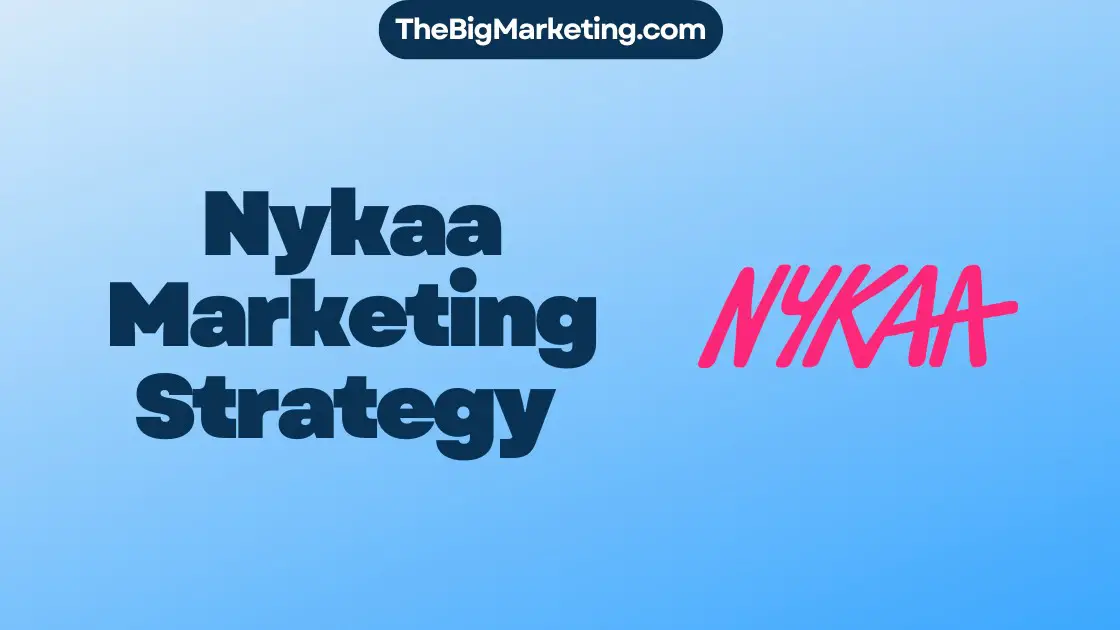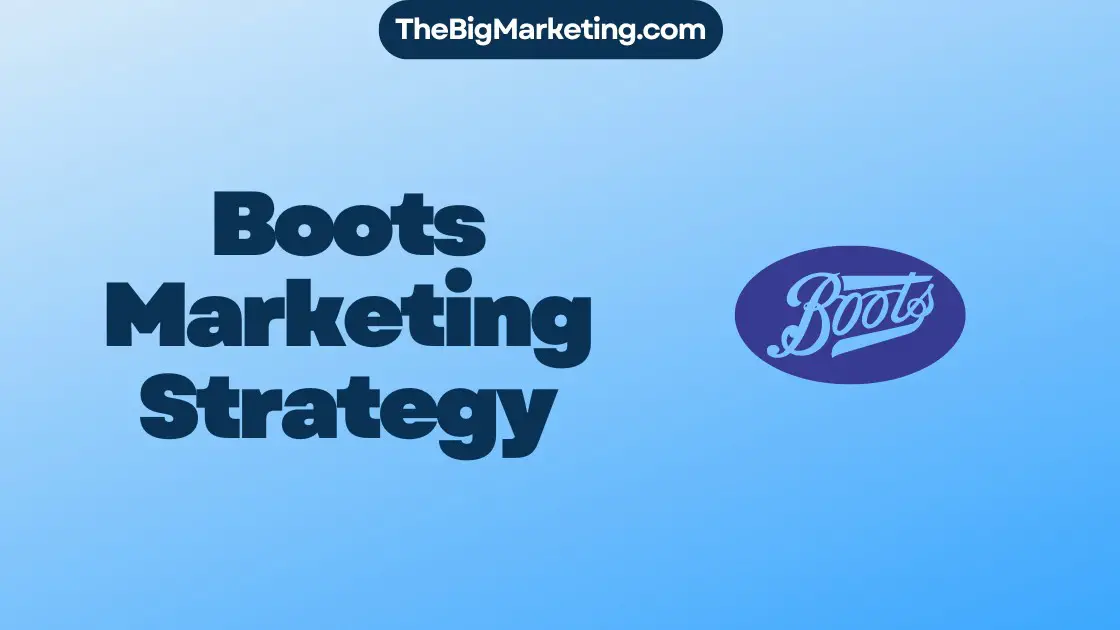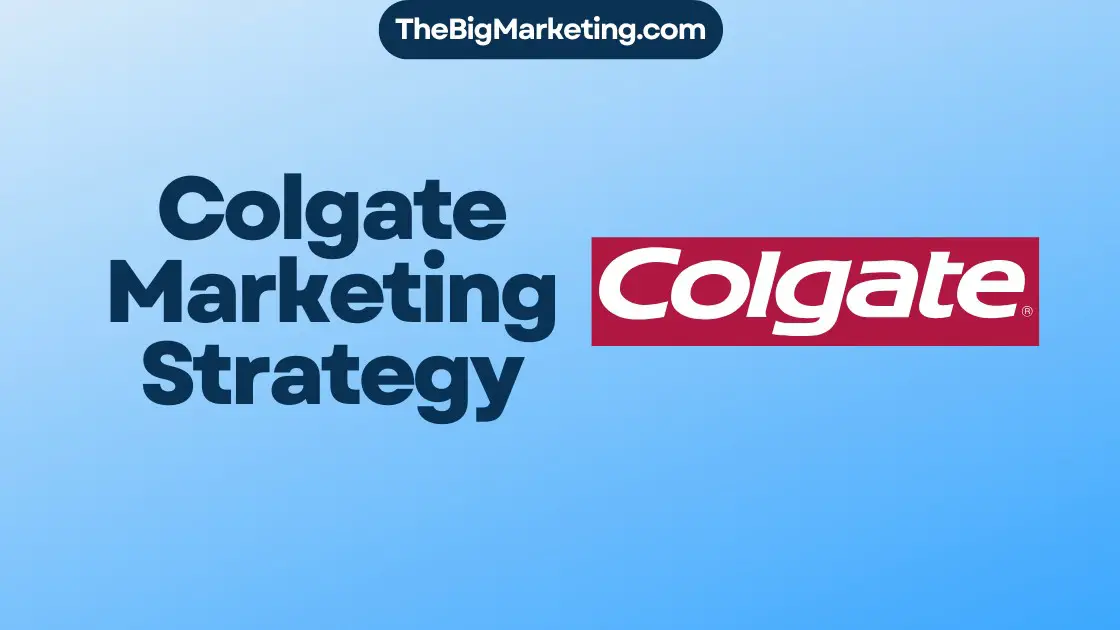KLM Royal Dutch Airlines, the oldest airline in the world, is renowned for its extensive global network, servicing 163 destinations worldwide. In line with its commitment to innovation and sustainability, KLM has developed a robust marketing strategy that leverages digital marketing, branding, market analysis, and effective marketing tactics.
With a focus on staying ahead of the competition, KLM has recognized the significance of digital marketing in reaching and engaging their target audience. Through careful analysis of consumer behavior and market trends, KLM has gained a competitive advantage by tailoring their marketing efforts to meet the evolving needs and preferences of their customers.
Furthermore, KLM’s branding strategy revolves around creating a customer-centric approach. The airline has successfully transformed its image and overcome previous perceptions of being old-fashioned and corporate. By actively listening to social media conversations, KLM has been able to gain valuable insights and ensure their marketing decisions align with the desires and expectations of their target market.
One of the key aspects of KLM’s marketing strategy is its emphasis on differentiation. The airline has introduced new products and services that showcase its unique and fun personality, effectively setting itself apart from competitors in the industry. This strategic approach has yielded remarkable results, with a record-breaking 32.7 million passengers flying with KLM in 2017.
Key Takeaways:
- KLM’s marketing strategy focuses on digital marketing, branding, and market analysis.
- The airline prioritizes customer-centricity and leverages social listening to inform its marketing decisions.
- KLM differentiates itself through innovative products and services that showcase its unique personality.
- Record-breaking passenger numbers highlight the success of KLM’s marketing strategy.
- Alignment with customer needs and preferences is key to KLM’s competitive advantage.
KLM’s Strategic Approach to Branding and Differentiation
In the competitive airline industry, creating a strong and memorable brand is crucial for success. KLM Royal Dutch Airlines, the oldest airline in the world, has taken a strategic approach to branding and differentiation to overcome its previous image of being old-fashioned and corporate.
One key aspect of KLM’s branding strategy is its focus on being customer-centric. By putting the customer at the center of its operations, KLM has been able to build strong relationships and foster loyalty. This customer-centric approach has allowed KLM to tailor its products and services to meet the specific needs and preferences of its target audience, resulting in a more personalized and engaging travel experience.
Furthermore, KLM leverages social listening to inform its marketing decisions. By actively monitoring and analyzing conversations on social media platforms, KLM can gain valuable insights into customer preferences, trends, and sentiments. This real-time feedback helps KLM develop targeted marketing campaigns and deliver relevant content to its audience, ensuring that its messaging resonates and drives engagement.
KLM’s Differentiation Strategies
| Differentiation Strategies | Description |
|---|---|
| Elevating the Travel Experience | KLM has introduced new products and services that showcase its fun personality, such as unique in-flight entertainment options and innovative amenities. |
| Embracing Sustainability | KLM has made significant efforts to reduce its environmental impact, implementing sustainable practices and investing in the development of eco-friendly technologies. |
| Providing Excellent Customer Service | KLM prioritizes delivering exceptional customer service, with a dedicated team trained to handle customer inquiries, complaints, and requests promptly and professionally. |
| Building Brand Personality | KLM has cultivated a distinctive brand personality rooted in friendliness, innovation, and a sense of adventure, allowing the airline to stand out in a crowded market. |
This strategic approach to branding and differentiation has paid off for KLM. In 2017, KLM achieved a record 32.7 million passengers, reflecting the success of its customer-centric initiatives and its ability to differentiate itself within the industry.
KLM’s Marketing Tactics and PR Strategies
KLM Royal Dutch Airlines, despite budget constraints compared to its competitors, has implemented effective marketing tactics and PR strategies to enhance brand awareness and customer engagement. Leveraging social media and word-of-mouth marketing, KLM has successfully generated buzz and positioned itself as a leader in the aviation industry.
Social Media: A Powerful Marketing Tool
Recognizing the power of social media in reaching a wide audience, KLM has strategically utilized various platforms to connect with customers and promote its brand. Through engaging content, including captivating images, videos, and interactive campaigns, KLM effectively captures the attention of its target market. The airline’s social media presence reflects its fun and vibrant personality, resonating with customers and encouraging them to share their experiences.
With a strong focus on customer engagement, KLM responds promptly to customer inquiries and feedback on social media platforms, building trust and fostering a positive brand image. By leveraging user-generated content and encouraging customers to share their travel stories under the hashtag #KLMDreamCatcher, KLM has successfully created a sense of community and loyalty among its customers.
Word-of-Mouth Marketing: Harnessing the Power of Recommendations
KLM recognizes the influence of word-of-mouth marketing in shaping customer perceptions and driving brand awareness. By creating unique and memorable experiences for passengers, KLM encourages customers to share their positive experiences with others, amplifying the reach of its brand.
KLM’s marketing strategy includes surprise and delight initiatives, such as personalized greetings, unexpected upgrades, and memorable in-flight experiences. These actions not only generate positive buzz among passengers but also encourage them to share their experiences with friends, family, and followers. KLM’s emphasis on providing exceptional customer service has resulted in numerous viral moments and positive customer testimonials.
PR Strategy: Creating Buzz and Earned Media Attention
In addition to social media and word-of-mouth marketing, KLM’s PR strategies play a pivotal role in enhancing brand visibility and reputation. The airline employs innovative tactics to create buzz and earn media attention, further amplifying its marketing efforts.
One notable example is KLM’s “Care Tag” campaign, where the airline distributed a voice-activated luggage tag that provided location-specific tips and recommendations to travelers in Amsterdam. This creative and unique approach garnered significant media coverage and social media buzz, showcasing KLM’s commitment to providing exceptional experiences for its passengers.
| Key Marketing Tactics | Benefits |
|---|---|
| Social Media Engagement | Increased brand awareness, customer engagement, and loyalty. |
| Word-of-Mouth Marketing | Positive brand reputation, organic growth, and customer advocacy. |
| PR Strategies | Buzz generation, earned media attention, and increased brand visibility. |
KLM’s Legal Battle over Greenwashing Claims
KLM, one of the leading airlines in the world, found itself embroiled in a significant legal case in 2022. Environmental organizations took legal action against the airline, accusing it of greenwashing and misleading advertising practices related to sustainability.
The claimants argued that KLM’s marketing claims falsely portrayed the airline as environmentally friendly while its plans to expand air traffic would contribute to the climate crisis rather than mitigate it. The court ruled in favor of the claimants, delivering a precedent-setting judgment with significant repercussions for the international aviation sector.
This ruling emphasizes the importance of transparency and integrity in sustainability advertising. It serves as a reminder to companies, including KLM, that greenwashing can have legal consequences.
The Implications of the Legal Case
The legal case against KLM highlights the importance of truthful and ethical advertising, especially in the context of sustainability. Companies should not make misleading claims that exploit environmental concerns and create a false impression of their commitment to sustainability.
This ruling has far-reaching implications beyond KLM. It sets a clear precedent for all companies that promote net-zero commitments without taking genuine actions to address sustainability. It sends a powerful message that accountability and transparency are vital in the fight against climate change.
The aviation industry, in particular, needs to reassess its marketing practices and ensure that claims of sustainability align with concrete actions. This legal case serves as a wake-up call for the industry to prioritize genuine sustainability efforts over greenwashing tactics.
Implications of the Legal Judgment on KLM
The recent legal judgment against KLM has significant implications for both the airline and the wider aviation industry. The ruling highlights the untenable nature of greenwashing advertising practices within the industry, where companies make misleading claims about their commitment to sustainability. This judgment serves as a strong warning to other airlines that engage in similar tactics.
One of the key implications of the legal judgment is its potential to pave the way for genuine climate action in the aviation industry. Airlines will be compelled to prioritize transparency and take concrete steps to reduce their carbon footprint rather than relying on deceptive marketing strategies. This shift towards genuine climate action is crucial in tackling the urgent challenge of climate change.
The judgment also emphasizes the need for fair competition within the industry. By penalizing KLM for its misleading advertising practices, the court has sent a clear message that all airlines must adhere to ethical marketing standards. This ensures that consumers are provided with accurate information, promoting fair competition among airlines that genuinely prioritize sustainability.
While the court did not issue specific remedies in this case, there have been calls for bans on greenwashing advertising and the introduction of climate warning labels on flight booking pages. These measures would further protect consumers from deceptive marketing tactics and promote genuine climate awareness. Such initiatives would require the collective efforts of regulatory bodies, airlines, and industry stakeholders.
| Implications of the Legal Judgment on KLM | Key Takeaways |
|---|---|
| The judgment highlights the untenable nature of greenwashing advertising practices in the aviation industry. |
|
| The ruling paves the way for fair competition and ethical marketing practices within the industry. |
|
| Calls have been made for bans on greenwashing advertising and the inclusion of climate warning labels on flight booking pages. |
|
KLM’s Unlawful Claims and Misleading Marketing
KLM’s marketing tactics, particularly its highly-publicized “Fly Responsibly” campaign, have recently come under scrutiny for alleged misleading practices in violation of European consumer law. Critics argue that the airline’s claims of creating a sustainable future and achieving net-zero emissions by 2050 do not align with its actual growth plans and operations.
This lawsuit against KLM raises significant concerns about the transparency and accuracy of the airline’s marketing messages. Expert evidence submitted in court has revealed that KLM’s carbon offset promotions, a key component of its sustainable branding efforts, do not effectively compensate for the climate impact caused by air travel. This evidence undermines the credibility of KLM’s claims and casts doubt on the airline’s commitment to combating climate change.
One aspect of KLM’s marketing that has drawn particular scrutiny is its “Fly Responsibly” campaign, which aimed to encourage travelers to choose more eco-friendly options and contribute to carbon offset projects. However, it has been argued that this campaign was misleading, as offsetting alone cannot fully mitigate the significant carbon emissions produced by air travel.
Evidence of Misleading Marketing
The expert evidence presented during the legal proceedings challenged the effectiveness of KLM’s carbon offsetting efforts. It was revealed that these offset projects do not adequately compensate for the carbon footprint generated by flights, leading to concerns about the airline’s misleading claims of sustainability.
The expert analysis focused on the carbon offset projects promoted by KLM. These initiatives invest in various renewable energy projects and reforestation efforts, with the aim of reducing the net carbon emissions associated with flying. However, the evidence demonstrated that even when passengers choose to offset their emissions through these projects, the overall carbon impact of the flight remains significant.
The expert evidence further revealed that the carbon offset projects endorsed by KLM often fail to provide measurable and verifiable results. This lack of transparency raises doubts about the true effectiveness of these projects and their ability to contribute meaningfully to carbon neutrality.
Overall, the evidence presented in court serves as a powerful indictment of KLM’s marketing tactics and raises important questions about the airline’s adherence to ethical advertising practices. The misleading nature of KLM’s carbon offset claims highlights the need for greater transparency and accountability within the aviation industry.
It is essential for consumers and regulatory bodies to have access to accurate and reliable information when making decisions about sustainable travel options. As consumers increasingly prioritize environmental responsibility, it is crucial for airlines like KLM to ensure that their marketing messages align with genuine efforts to reduce the environmental impact of air travel.
| Evidence | Findings |
|---|---|
| Expert Analysis | KLM’s carbon offset projects do not effectively compensate for the carbon emissions of flights. |
| Transparency Issues | KLM’s carbon offset projects lack verifiability and measurable impact. |
| Marketing Misrepresentation | KLM’s “Fly Responsibly” campaign misleadingly promotes offsetting as a solution to the environmental impact of air travel. |
KLM’s Response to the Lawsuit and Marketing Changes
Following the initiation of legal proceedings, KLM took action by discontinuing its controversial “Fly Responsibly” campaign. The airline also made adjustments to its carbon offset marketing in an attempt to address the concerns raised by the lawsuit. However, these changes failed to adequately rectify the flawed offset claims and the overall false impression of reducing carbon emissions.
KLM’s response to the lawsuit included the introduction of the CO2 Impact program, which aimed to allow customers to offset the environmental impact of their flights. However, despite these efforts, the program has been criticized for its limited effectiveness in combating climate change. Additionally, KLM’s decision to offer frequent flier points as incentives for purchasing carbon offsets further perpetuates the environmental impact of air travel.
Marketing Changes and their Impact
As part of its response to the lawsuit and growing consumer demand for sustainability, KLM recognized the need for changes in its marketing strategies. However, the airline’s attempts at rectification fell short of addressing the core issues. The discontinuation of the “Fly Responsibly” campaign was a step in the right direction, acknowledging the need to move away from misleading advertising.
However, more substantial changes are required to achieve genuine decarbonization and reduce the airline’s overall carbon footprint. KLM should prioritize implementing sustainable practices throughout its operations and invest in technologies that significantly reduce emissions. Merely offering carbon offset programs without concrete plans to decrease the climate impact of flights ultimately undermines the airline’s commitment to sustainability.
KLM’s utilization of frequent flier points as incentives for purchasing carbon offsets is a concerning practice. This marketing tactic fails to address the underlying issue of reducing air travel and dependence on fossil fuels. Instead, it encourages customers to engage in more flights, thereby perpetuating the climate impact of aviation.
KLM’s response to the lawsuit must go beyond superficial changes in marketing strategies. The airline needs to demonstrate a genuine commitment to reducing its carbon footprint and aligning its operations with sustainable practices. Focusing on innovative technologies, investing in renewable energy sources, and exploring alternative fuels are crucial steps towards achieving substantial and lasting environmental improvements.
| KLM’s Response | Impact |
|---|---|
| Discontinuation of “Fly Responsibly” campaign | Acknowledgement of the need for more transparent and responsible advertising |
| Introduction of CO2 Impact program | Providing customers with the option to offset their flights but falls short in reducing the airline’s overall carbon footprint |
| Offering frequent flier points as incentives for purchasing carbon offsets | Encouraging more air travel and perpetuating the climate impact of flights |
It is vital for KLM, as a prominent player in the aviation industry, to recognize the responsibility it has in addressing climate change. Implementing genuine and impactful marketing changes, backed by concrete actions, is essential to ensure a sustainable future for both the airline industry and the planet.
The Wider Impacts of Greenwashing in the Airline Industry
The airline industry’s rapid growth and the transition towards a net-zero future have raised concerns about greenwashing practices and their wider impacts on the environment. Greenwashing refers to the deceptive marketing tactics employed by companies to present themselves as environmentally friendly or committed to sustainability without taking substantial actions to mitigate their climate impact. In the case of the airline industry, greenwashing poses significant challenges to addressing the climate crisis.
As the aviation sector continues to expand, it heavily relies on speculative future technologies and limited alternative fuels to achieve sustainability goals. This focus on unproven solutions diverts attention from the urgent need to reduce emissions and preserve the use of harmful fossil fuels. Greenwashing perpetuates the illusion that the industry is making significant progress towards a greener future, which undermines genuine efforts to tackle climate change.
Aviation’s climate damage extends beyond carbon emissions. Aircraft noise pollution, habitat destruction, and local air quality issues disproportionately impact vulnerable populations and future generations. The negative consequences of greenwashing and the delay in implementing effective measures to reduce aviation’s environmental footprint put these communities at additional risk.
This judgment against KLM serves as a wake-up call for industries and companies that make false claims about their commitment to climate goals. It highlights the importance of transparency and genuine actions to address the climate crisis. It also underscores the need for the aviation industry to prioritize sustainability and invest in cleaner technologies and practices.
Lobbying for Change
Lobbying plays a significant role in shaping policies and regulations in the aviation industry. Greenwashing practices can be perpetuated through lobbying efforts that seek to protect the interests of the airline industry without addressing its environmental impact. It is crucial for policymakers to remain vigilant and independent, considering the long-term effects of such practices on the environment and public health. By scrutinizing lobbying activities and advocating for genuine climate action, policymakers can ensure that sustainability remains a priority.
The Way Forward
To combat greenwashing and advance sustainability in the airline industry, stakeholders must work collectively towards the following:
- 1. Regulation and Oversight: Implement stricter regulations and monitoring systems to identify and penalize companies engaging in greenwashing practices.
- 2. Transparency and Reporting: Companies should provide accurate and detailed information regarding their environmental impact, including carbon emissions, noise pollution, and other factors, enabling consumers and stakeholders to make informed decisions.
- 3. Industry Collaboration: Collaboration among airlines, regulators, and other stakeholders is essential to develop industry-wide standards and best practices. Creating a unified approach ensures consistency and fairness in addressing climate issues.
- 4. Research and Innovation: Continued research and investment in sustainable aviation technologies, such as alternative fuels and electric aircraft, are crucial for achieving net-zero emissions in the industry.
By holding airlines accountable, promoting transparency, and encouraging innovation, the aviation industry can move towards a more sustainable future. It is vital that all stakeholders prioritize genuine climate action, rejecting greenwashing practices and embracing comprehensive strategies to reduce the environmental impact of air travel.
| Impacts of Greenwashing | Action Steps | |
|---|---|---|
| Environmental | Delays necessary actions to reduce emissions | Implement stricter regulations and monitoring systems |
| Social | Disproportionately affects vulnerable populations | Promote transparency and reporting |
| Economic | Undermines genuine sustainability efforts | Encourage industry collaboration |
| Health | Negative consequences on public health | Invest in research and innovation |
The Need for Policy Solutions and Decarbonization
The recent judgment serves as a wake-up call to address the urgent need for policy solutions that facilitate decarbonization away from fossil fuels. To effectively combat the climate crisis, it is crucial to clean up advertising practices and prevent misleading tactics that hinder sustainability efforts.
Calls for a ban on fossil fuel advertising in the European Union have emerged as a result of this landmark case. Such a ban would play a pivotal role in curbing the promotion of misleading claims and encouraging transparency in the industry. By prohibiting fossil fuel advertising, companies would be compelled to shift their focus towards cleaner and more environmentally friendly alternatives.
Addressing the climate crisis requires a comprehensive approach that encompasses both legislative action and responsible marketing practices. Governments and policymakers must work hand in hand with businesses to develop effective policies that support the transition to renewable energy sources and sustainable practices.
Decarbonization efforts should be the centerpiece of these policy solutions, emphasizing the reduction of carbon emissions and the adoption of clean energy technologies. By incentivizing the use of renewable resources and implementing stricter regulations, we can pave the way for a more sustainable and greener future.
The Role of Clean Up Advertising
To accelerate the decarbonization process, it is paramount to clean up advertising practices within the energy sector. Misleading and deceptive advertisements contribute to the perpetuation of unsustainable practices and hinder progress in addressing climate change.
Cleaning up advertising involves promoting genuine and verifiable claims, while discouraging greenwashing and misleading marketing tactics. By ensuring that advertising aligns with the actual environmental impact of products and services, consumers can make informed choices and support companies that genuinely prioritize sustainability.
The Benefits of Policy Solutions
The implementation of policy solutions and the adoption of responsible marketing practices serve various benefits in the fight against climate change. These include:
- Promoting transparency and honesty in advertising, enabling consumers to make more informed decisions.
- Encouraging companies to prioritize environmental sustainability and invest in clean energy alternatives.
- Stimulating innovation and the development of greener technologies.
- Creating a level playing field for businesses, ensuring fair competition and preventing greenwashing.
- Driving widespread adoption of decarbonization initiatives, contributing to the achievement of global climate goals.
By implementing effective policy solutions and cleaning up advertising practices, we can establish a more sustainable and responsible economy that prioritizes the well-being of our planet and future generations.
The Importance of Recognizing Feasible Climate Claims
The recent judgment in the legal battle over greenwashing claims against KLM highlights the significance of recognizing feasible climate claims. Companies that promote their commitment to the goals of the Paris Agreement must ensure the feasibility and concreteness of those claims to avoid legal consequences.
Highly polluting industries and companies that make misleading claims without tangible plans to address climate change are now more at risk of facing legal action. This decision serves as a wake-up call for organizations to prioritize transparency and take genuine actions to achieve their climate goals.
The Paris Agreement Goals
The Paris Agreement, an international climate accord, aims to limit global temperature rise to well below 2 degrees Celsius and pursue efforts to limit the increase to 1.5 degrees Celsius. The agreement also emphasizes the need for countries and companies to develop and communicate their climate commitments and strategies.
By aligning their actions with the Paris Agreement goals, companies can contribute to global efforts to mitigate climate change and transition to a sustainable future. However, it is crucial that these commitments go beyond mere greenwashing and demonstrate real progress towards reducing carbon emissions.
Legal Consequences
Companies that fail to deliver on their climate claims may face legal consequences, as exemplified by the KLM case. The court ruled in favor of the claimants, highlighting that the airline’s advertising falsely promoted its environmental friendliness while its growth plans would contribute to the climate crisis.
This precedent-setting judgment holds implications for all companies promoting net-zero commitments and highlights the need for transparent and accountable practices. It underscores the importance of aligning marketing claims with concrete actions to avoid legal repercussions and foster genuine progress in addressing climate change.
| Key Takeaways |
|---|
| Companies must ensure the feasibility and concreteness of their climate claims to avoid legal consequences. |
| The Paris Agreement goals provide a benchmark for climate commitments. |
| Failing to deliver on climate claims can result in legal action. |
Conclusion
In conclusion, KLM’s marketing strategy has undergone significant changes, with a focus on branding, differentiation, and digital marketing tactics. The airline’s innovative approach has helped reshape its image and attract a wider customer base. However, KLM also found itself embroiled in a legal battle over greenwashing claims, which highlighted the importance of transparency and genuine actions in addressing climate change.
The court’s judgment against KLM serves as a wake-up call to the aviation industry, underlining the significance of feasible climate claims in advertising. Moving forward, it is imperative for the industry to prioritize decarbonization efforts and adopt cleaner marketing practices to effectively combat the climate crisis.
As companies continue to navigate the challenges posed by climate change, it is essential to align marketing strategies with sustainable practices and real action. By doing so, businesses can not only build a positive brand reputation but also contribute meaningfully to a more environmentally conscious future.





